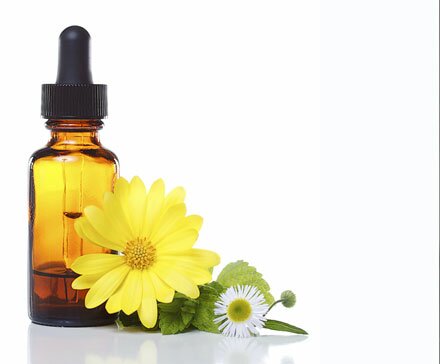Bach Flower Remedies

Born in 1886, Edward Bach was an English doctor, bacteriologist and pathologist, who was conducting research into vaccines when he became interested in a more holistic approach to medicine. Dissatisfied with the tendency to treat the disease rather than the whole person, he began collecting plants and in particular flowers – the most highly developed part of a plant – to find remedies.
He believed that illness was the result of internal conflict, and that negative moods such as unhappiness, fear or worry, caused a lack of harmony which ultimately manifested themselves in physical disease. By correcting this emotional imbalance, illness could be treated or avoided. “Health depends on being in harmony with our souls,” he asserted.
Bach abandoned scientific methods of research and turned instead to his intuition to guide him to the right plants. Whilst experiencing a negative emotion he would hold his hand over different plants, and if one alleviated the problem he would ascribe to it the power to heal. In this way he identified 38 flower remedies that can be used alone, or in conjunction with others to treat emotional and spiritual conditions.
The flowers are divided into seven groups:
Face Your Fears gives courage, reassurance and peace of mind to the fearful.
Know Your Own Mind helps with feelings, and can increase decisiveness and a sense of direction.
Find Joy and Hope overcomes feelings of despondency, despair and self-doubt.
Reach Out to Others helps people who feel lonely or alone to connect with others.
Stand Your Ground helps those who put on a brave face become more assertive and constant.
Live and Let Live aids tolerance and the ability to unwind in those who are overbearing and possessive.
Live the Day gives enthusiasm and tranquillity to those who dwell too much on the past instead of enjoying the present.
In addition, Bach developed the Rescue Remedy, which is a ready-made combination of 5 flower essences that can provide comfort and reassurance for daily stressful situations.
The remedies are usually taken orally by mixing with water, although they are also available as droppers, sprays, liquid melts and pastilles. Only a few drops are required which should be taken several times a day. In some cases results can be instant, whilst in others it could take several days for any benefits to be realised.
There is little scientific evidence to prove the effectiveness of Bach’s Flower remedies, and some claim that any benefits experienced are due to the Placebo effect. That said, they have now been in existence for over 80 years, and there are plenty of testimonials available on the internet giving credence to their effectiveness and healing properties.
-
http://www.netweather.tv IanM
-
lauriej1
-
Sandra Courtney
-
ReallyGoodMedicine
-
https://localbuzzmagazine.com/west-berkshire Local Buzz Magazine
-
AlanHenness






